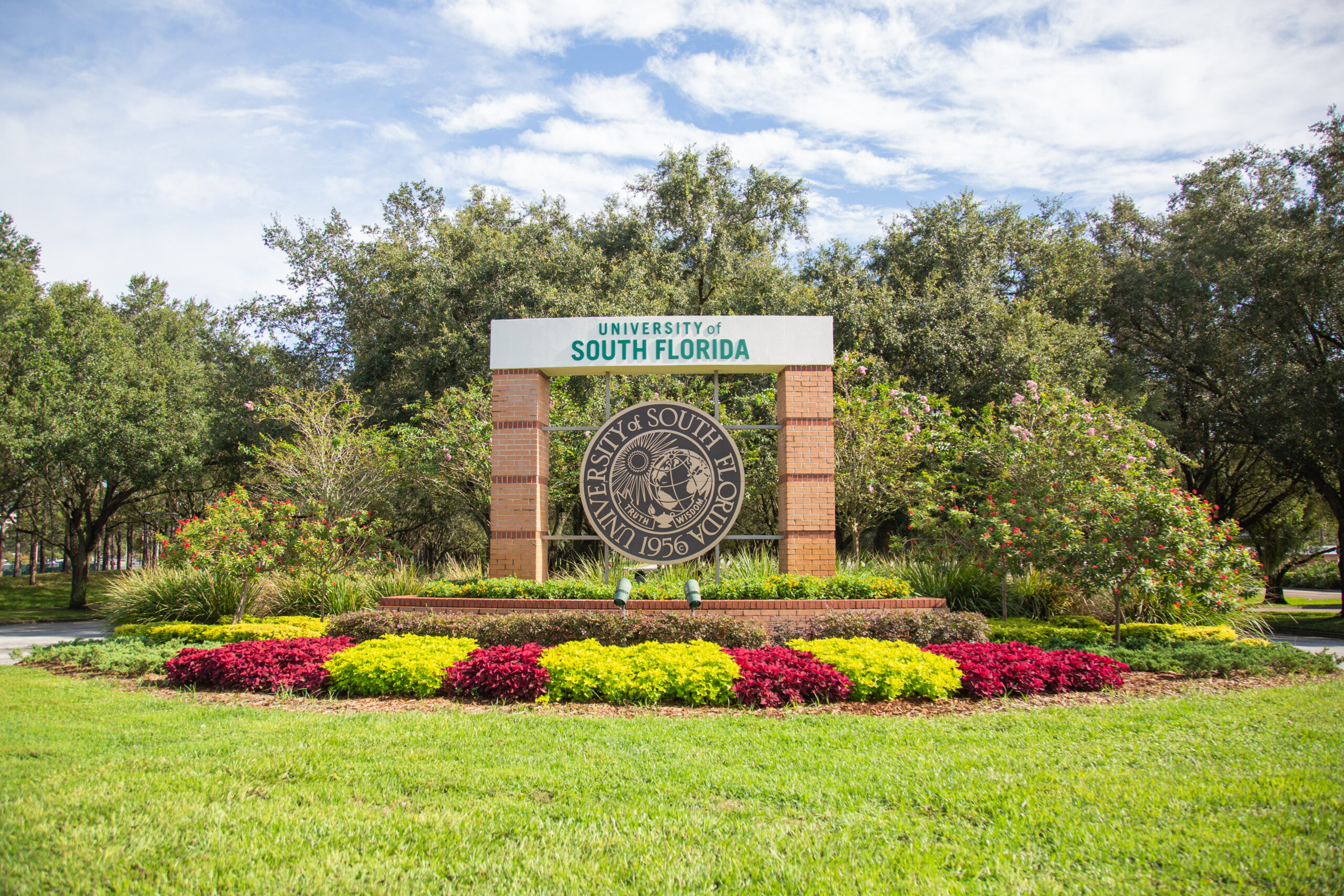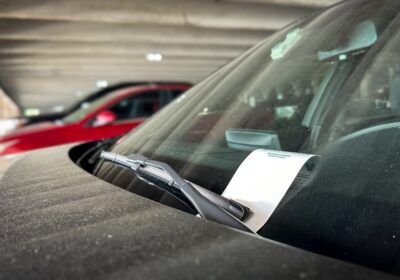Faculty members anxious about future budget cuts

Amid future budget cuts in state funding for the 2020-21 fiscal year, USF faculty were left wondering whether their programs or jobs will be eliminated by administration in the coming months.
The Board of Trustees on Aug. 19 approved a reduction plan to cut 8.5%, or $36.7 million, in state funding for the 2020-21 fiscal year. For Timothy Boaz, president of the Faculty Senate and associate professor in the department of mental health law and policy, the budget cuts will cause “ripple effects” throughout the university as a whole.
“The biggest way in which it will affect the faculty is that $13.4 million out of $37 million is going to be taken out of the budgets for the colleges,” Boaz said. “The colleges have budgets, the faculty within the college are in the college budget, so in terms of the impact on faculty, it is that $13.4 million that is the most direct.”
This $13.4 million cut will not be distributed evenly across each college, according to Boaz.
“The president has made it clear that he wants our cuts to be strategic, which means that we won’t have an across-the-board cut,” he said. “Some places will have more cuts than other places. That means that some colleges may have more cuts than other colleges.”
This uneven budgeting will force some college deans to cut entire degree programs, according to Boaz, though specific programs to be cut have not been decided yet.
“The students that are in those programs would still be able to complete their degree,” he said. “That is a requirement that our accreditors have of us. If we eliminate a program, we have to do what is called a ‘teach-out’ where the students that are currently enrolled get to finish their degree.”
Though students may not initially feel the effects of the cut, the loss of programs will be felt by the faculty who rely on those positions, according to Boaz.
“Non-tenured faculty are at risk anywhere, but tenured faculty can be laid off if a unit is eliminated,” he said.
This uncertainty has left many faculty members wondering if there will be a place for them in future semesters.
Alex Levine, chair of the philosophy department, said he fears that future cuts will leave their programs defunct.
“My department’s operating budget is fully covered by the tuition we generate alone,” he said. “That same annual operating budget would be insufficient to cover even the start-up costs of many cutting-edge science laboratories, costs that universities often never recoup.”
Despite his argument that the philosophy department and other arts departments should not receive cuts, Levine conceded that specified cuts make sense because USF does not have extra money to go around.
“Far from fat and happy, our university, and especially our faculty are fatigued and demoralized,” he said. “The cuts are inevitable, and it makes sense for them to be targeted rather than distributed evenly across the university.”
Director of the art and art history department Wilson Wallace said that he met with his college dean but does not yet “know the amount of our respective reductions and how we will contend with them.”
Even faculty members within STEM expressed concerns about the recent budget cuts. Greg McColm, associate professor in the department of mathematics and statistics, said that the cuts will largely depend on the results of the November elections. He said that if the cuts do continue after the election, he will feel the effects.
“I do not know how the cuts will affect me personally, but I am sure that I will be affected … this pandemic — coupled with the aftermath of a consolidation engineered by Tallahassee — is unpredictable enough that no one should think that the terms and conditions of their employment won’t be affected,” he said.
The cuts in funding will impact current USF students as well. The student-to-faculty ratio will be noticeably decreased, according to Boaz. He said USF administration was already concerned about the 24:1 student to faculty ratio in 2018 and was in the process of taking steps to make class sizes smaller. In 2019, the ratio decreased to 21:1.
Despite the strides toward reducing the student-to-faculty ratio, Boaz said the budget cuts will negate all prior efforts.
“Resources [for hiring faculty] have been tight leading into [COVID-19]. And now, if we’re laying faculty off, it makes that situation even worse than it was already,” Boaz said.
In a press release by President Steven Currall on Oct. 3, he said that the hiring of new faculty was put on pause in response to the budget challenges from COVID-19. This, combined with the impending cuts, will pose a risk to the recently improved 21:1 student-to-faculty ratio.
“We will end up with classes of higher enrollments than we would have otherwise,” Boaz said. “This may not be a dramatic increase but I think students will notice that.”
The cut of state funding is an unnecessary decision by the Florida Legislature, according to Executive Director of the United Faculty of Florida Marshall Ogletree.
“I fear that students, faculty and graduate assistants are being ignored at the expense of politics,” he said.
Boaz said that USF has lost money in recent years after investing in student success metrics. The university sought to improve its achievement-based metrics by implementing programs designed to prepare students for high-paying jobs by providing them with high-level skills.
The administration anticipated receiving a stipend from the state Legislature because of the improvements in the university’s rankings, but it only received $75.9 million. Compared to 2019, USF received $1.23 million less in stipends, despite USF ranking first in the state for performance-based metrics this year.
“We have pursued this strategy during the first two decades of the century despite the fact that times have continued to be lean for higher education, both nationwide and in Florida,” Levine said. “This strategy has been both an astonishing success, and an abject failure.”
Boaz said the overall downside of this endeavor was most prevalent this year since USF ranked No. 1 out of all the state universities for performance-based metrics such as affordability, graduation rates and lack of student debt.
“This year, [the state Legislature] didn’t provide any new money with performance-based funding,” Boaz said. “We can’t make those changes without those investments, so we ended up losing money as a result of that.”
This was particularly frustrating for faculty members like Levine.
“From the faculty perspective, what is most galling about this situation is that none of it is our fault,” he said. “We have been consistently asked to do more with less in order to meet performance metrics, and we have consistently risen to the occasion.”
The lack of a stipend was augmented by the lack of funds provided by the Florida Senate this year due to tax revenue inadequacy. Next year, the Faculty Senate is expecting even worse, according to Boaz.
“We have been warned that it is quite possible that we will have an even larger cut next year,” he said. “So we have been asked to prepare for a 10% cut in the ‘Education and General’ part of our budget.”
Considering the future impacts of COVID-19 in state funding, the university is also planning for an additional 10% cut in the 2021-22 fiscal year.
Even with budget cuts they will be forced to make, Boaz said that the administration is aiming to keep many of the programs that gave the university its preeminent status, but may not be able to.
“Some of the cuts that we are going to be making are cuts to programs that we put in place specifically to improve student success,” he said. “So I wouldn’t be surprised if it has an impact on our ability to maintain the high level of performance that we have in the last few years.”
Faculty members like Wendy Whitt, senior instructor at the Zimmerman School of Advertising and Mass Communications, remain optimistic about student performance in the future despite the possible removal of success-based programs.
“I am confident the university leadership will continue to focus on student success, and students will be the priority in all budget decisions,” she said.
The $23.6 million of the overall budget cut that will not be taken out of the individual colleges will be cut from other parts of the university, like maintenance and IT assistance, according to Boaz. Though they will not be as severe to the students and faculty as the potential layoffs and program removals, they will have a negative effect on the way that the university functions as a whole.
“I don’t know specifically how my college will be affected,” Whitt said. “But I think most everyone will be affected in some way, whether that is fewer opportunities to attend conferences or to replace aging equipment and technology.”
The final cuts are intended to be made by the end of the spring semester, but Ogletree said he hopes for an alternative solution.
“I think the most important thing for the university to do, and the faculty as well, is to try and get the U.S. Senate to agree upon a financial package that will help soften or eliminate the budget cuts that the state of Florida is considering,” he said.
He called the measures taken by USF administration “premature” because there are several legislative actions that could be taken at a state or national level to prevent the cuts. He said university reserve amounts could be changed, or the Budget Stabilization Fund could be tapped by the state Legislature to prevent the cuts which now threaten all Florida universities.
If no action is taken by the Senate, the administration will have to continue its efforts in determining which colleges will have faculty and programs removed.
“We’ll learn more in the near term how the process is going to unfold,” Boaz said. “Right now, we are just focused on the cuts we are going to make for this first year. We will wait and see the impact that these things will have on the university.”






